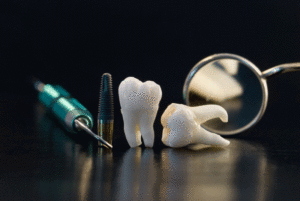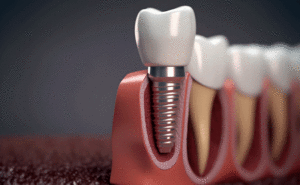According to the Bad Breath Institute, it’s estimated that up to 45 percent of the total worldwide population have some level of bad breath, or halitosis – and we’re not talking about “morning breath.” In the U.S. alone, it’s estimated that up to 80 million people experience some sort of halitosis. This has led to an oral hygiene industry valued at some $10 billion domestically. The good news is that bad breath isn’t impossible to overcome, and your dentist is there to help.
Here’s a closer look at how your dentist can help you fend off bad breath:
- Determine the root cause: Though bad breath can originate from a poor oral care regime, other root causes can be mouth infections, dry mouth and/or smoking. While a good, thorough cleaning can often resolve any infection that is contributing to bad breath, your dentist can also make some oral care recommendations to help you resolve breath issues. For instance, you should already be brushing at least twice a day and flossing at least once a day, but using a mouth rinse to destroy odor-causing bacteria and regularly scraping your tongue are solutions that may be suggested to further combat breath odor.
- Other suggestions: Dry mouth can contribute to bad breath because the mouth isn’t creating the saliva it needs to wash away food debris and bacteria. However, you can stimulate saliva production by chewing sugar-free gum and consuming plenty of water (six to eight glasses) each day. Hence, in addition to adjustments to your oral care routine, your dentist can recommend other measures you can instill.
- Prescribed mouthwash: If neither of the above measures work to curb your bad breath, your dentist may prescribe a special mouthwash for you to use. These types of mouth rinses provide an extra oomph of power in eliminating odor-causing bacteria.
- Other tips: There are a variety of other tips that dentists may suggest based on a patient’s specific situation. For instance, for patients who wear dentures, the dentist will work to make sure that they are being properly cleaned and disinfected every night. If bad breath is emanating from tooth decay, filling cavities and conducting other restorative measures may be necessary. The origin of foul breath may also be partially related to the age of the toothbrush you’re using, which is why it’s advised to swap this utensil out for a new one every three to four months.
When it comes to foul breath, the best way to combat it is by adopting – and sticking to – a rigorous oral hygiene routine. With that said, make sure you’re adequately brushing and flossing as recommended and complementing such activity with mouth wash and other products when necessary.
For more information on how your dentist can help you beat bad breath, contact Caven Dental today.



